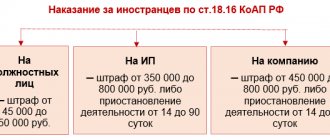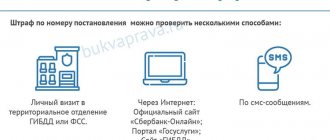Before the bank files a lawsuit against the debtor, it goes through several stages to correct the situation. First, the lender will determine the reason, then offer to refinance or get a credit holiday. If this does not solve the problem, the bank will go to court, after which the bailiffs will take an inventory of the property. Criminal liability for non-payment of debts is a last resort. Find out what penalties are provided for non-payment of a loan, and how to avoid going to jail when you can’t pay for the loan.
What consequences await the loan debtor?
If the borrower does not fulfill financial obligations to the bank, managers will immediately call and clarify the reason. Defaulters are warned of penalties and accumulation of debt. If this does not help, the bank will go to court or sell the debt to collectors.
When it comes to court, banks often win their cases. As a result, the debtor will still be forced to repay the debts. If you have no money or have lost your job, your property will be seized. Bailiffs will take an inventory of property and valuables and estimate the value.
The only housing in Russia is prohibited by law from being taken away. But this rule does not apply to luxury apartments. There have already been cases in judicial practice when a debtor tried to declare himself bankrupt while owning a five-room apartment. As a result, the property was sold, and part of the money was taken to pay off the debt.
Where to go to get your money back
To return money lost as a result of fraudulent actions, the victim can contact any police department and write a statement. This needs to be done as quickly as possible after losing money. An urgent response from the victim will allow prompt action to be taken. In this case, there is a possibility of returning the lost money. It is advisable to attach to the application the website address, printouts of written communications, the account number for the transfer, and the phone number from which the information came.
You can also leave a statement on the Ministry of Internal Affairs website, attaching screenshots of existing correspondence with the fraudster.
Important!
Even if the amount of damage is small, you should definitely file a report with the police.
Criminal liability for evasion of loan payments
In accordance with the Criminal Code of the Russian Federation, under Article 177, the debtor faces criminal prosecution for evading financial obligations under the loan. But this will happen under two conditions:
- the debtor deliberately evades payment of the debt and is considered malicious;
- the amount of debt to the bank exceeds 1.5 million rubles.
If the creditor proves these facts of violation in court, the debtor will face restriction of freedom for up to two years. Russia also provides for administrative liability for evading financial obligations to the bank. The following conditions apply:
- the debtor illegally received money from the bank;
- When applying for a loan, false documents were provided;
- the court revealed the fact of malicious evasion of loan payments.
In these cases, the court forces the debtor to return the money after the sale of property or securities.
Features of the investigation
By initiating a criminal case, the investigator will find out exactly how the debtor evaded repayment of the debt, how many times the victim demanded to repay the debt. This is necessary to prove the maliciousness of the evasion.
The investigator will definitely establish the amount of damage. This is not difficult to do. The amount of debt is indicated in the court decision. If it is less than 1,500,000 rubles, it will not be possible to bring the debtor to criminal liability.
At the bank, the investigator will seize the credit file of the debtor company, at the tax office - its balance sheets for the latest reporting periods (depending on how long the company evaded repayment of the debt).
The suspect will be questioned by the investigator about what needs the loan was used for, why it has not yet been repaid, etc. Employees of the financial department and accounting department will be questioned as witnesses. The investigator must establish whether the company had a real opportunity to repay the debt.
The investigator may order examinations: handwriting examinations to determine who signed the papers, and forensic accounting examinations to find out whether the company has financial difficulties and whether it conducted business activities after the court decided to collect the debt.
What happens if you miss a monthly payment?
This entails penalties, but there is no administrative or criminal prosecution for this. The next day after you missed a payment, the bank manager will call you to find out the reason. But penalties and fines will still be charged in accordance with the loan agreement. For example, at Sberbank, for late repayment of a loan, the fine is 20% per annum of the amount of the unpaid payment. If you have to deposit 10 thousand rubles. by May 15, but made the payment on May 20, it turns out that you will have to pay 12 thousand rubles.
What does the bank do before the trial?
Before the case goes to court, it takes several months to a year before the bank management decides to collect the debt in this way. While the borrower does not pay the money, the bank can do the following.
- Sells the debt to a collection agency. Collectors will constantly call the debtor and ask about repayment of the debt.
- The bank transmits the information to the BKI and blacklists the borrower. As a result, you will not be able to get a second loan anywhere.
- Bank representatives can call the debtor themselves and offer a way out of the financial situation.
If these measures do not help, the case is taken to court and the borrower is forced to pay the debts after a decision is made. But if the debtor really does not have the money to fulfill his obligations, he can file for bankruptcy.
A bankruptcy case is considered under a simplified procedure if the amount of debt does not exceed 500 thousand rubles. The entire process of declaring a debtor bankrupt takes no more than six months, and documents are submitted through the MFC.
Types of fraud on the Internet
Fraud has one feature that makes it difficult to investigate - in most cases, the victim, of his own free will, provides information to the criminals that leads to the loss of his money. Types of fraudulent activities in cyberspace:
- Online stores. A huge number of stores offer low prices on goods. This attracts people, they pay money for a virtually selected product. After the money arrives in the seller’s account, it disappears, leaving the buyer without money and goods. The second type of deception in an online store: instead of the declared item, a bad copy is sent by mail, cheaper and of worse quality.
- Creating copies of bank websites. The scammer who created this site invites the user by email or SMS to log in to it. When a user lands on a fake website, he logs into his personal account, revealing logins and passwords to access his accounts. Using this data, the fraudster empties the bank account.
- Hacking electronic wallets. This type of receiving and storing money has become popular in recent years. The fraudster can send a message about the operator’s loss of credentials with a request to send them again. After receiving this data, he will empty the wallet.
- Emails. A letter arrives in the mail with a message about the won valuable prize. To receive it, the winner must transfer a certain amount to the account specified in the letter.
- SMS message from the bank about account blocking. After this message they ask you to transfer money to unblock it.
- Fake airline websites. Prices that are too low, a request to transfer money to an electronic wallet, or a foreign bank account are points that should alert the buyer.
- Imaginary charitable purposes. A story appears online about a child who needs urgent surgery abroad. This is where the money is collected.
- Distant work. Some unscrupulous employers offer work from home with advance payment for organizational needs. Even after completing the proposed work, the contractor will not receive money for it and will waste his money and time.
The understanding that the possibilities of the Internet are limitless does not add to optimism. This means that scammers will come up with new schemes to deceive people.
How to avoid going to jail if you don’t have money to pay off your loan?
First of all, notify the lender in advance that there is no money to pay off the loan debts. If you have lost your job, take a 2-NDFL certificate or from the labor exchange. This will be proof that you are making contact with the lender and are not shying away from fulfilling financial obligations. When the case is considered in court, you will no longer be able to be held criminally liable, since you notified the creditor in advance about the loss of your job.
It is not profitable for the bank for the case to drag on and end up in court. The bank’s task is to return the money with interest, so if the debtor makes contact, he will be given several options for solving the problem.
Credit holidays. If you have temporarily lost your job and financial difficulties are temporary, take advantage of credit holidays. Under credit holidays, the debtor is given a deferment from repaying the debt for up to a year. But many Russian banks provide credit holidays to customers for up to six months. In this case, the bank does not charge penalties and fines, and the client begins to pay debts after six months.
Refinancing. Another option for getting rid of loan debt is refinancing. Suitable for those who want to reduce the amount of monthly payments. Thanks to refinancing, it is possible to reduce the interest rate, which ultimately reduces the amount of overpayment. For example, we took out a loan from VTB at 15% per annum, but could not cope with the financial burden. We saw that Sberbank offers refinancing at a rate of 9% per annum. Submit an application for refinancing to Sberbank and receive VTB’s consent. Please note that for refinancing you must not allow late payments, otherwise you will receive a refusal.
Bankruptcy. When you have absolutely no money and no work to pay off the loan, and you live in a single one-room apartment, you should think about the bankruptcy procedure. If the amount of debt exceeds 500 thousand rubles. The bankruptcy procedure will follow the standard procedure. You will be prohibited from holding leadership positions, and all income will be controlled by bailiffs. If bank accounts, deposits, deposits and securities are found, they will be seized to pay off the debt. You should think about bankruptcy as a last resort, when you are sure that you will not find the money to pay off the creditor.
Read the article “How to get out of microfinance debts with maximum interest?”
Types of theft, regardless of the amount of damage
There are crimes that qualify as theft, and the amount of damage caused to the victim is not important for initiating a criminal case . Thus, for crimes such as robbery and robbery, the actual damage can be expressed in several rubles, and the perpetrator still bears criminal liability for the act. At the same time, in additional qualifying criteria for these acts, the size of the stolen property is taken into account.
In accordance with Art. 161 of the Criminal Code of the Russian Federation, robbery is the open theft of someone else's property. Unlike theft, an attacker steals something valuable in front of eyewitnesses or the victim himself. A classic example of robbery is the sudden snatching of a bag from a woman’s hands in a crowded place: such actions are qualified under Part 1 of Art. 161 of the Criminal Code of the Russian Federation, punishment can be up to 4 years in prison.
Robbery has an increased social danger compared to theft or fraud, since it is committed openly and boldly, contrary to the norms of morality and morality, in full view of society. Moreover, robbery can be committed with the use of violence that is not dangerous to life or health (a push, one or two blows with a hand or foot without the use of weapons or objects) or with the threat of such violence, which is absolutely excluded in case of secret theft. Taking into account all these characteristics, the legislator provided for the liability of the perpetrator of robbery without reference to any amount.
Example No. 11 . Previously repeatedly convicted Petrov A.K. in the dark I saw a student passing by wearing headphones. Petrov decided that the young man had an expensive phone and stopped him, demanded the gadget, threatening to beat him. Frightened, the student gave away the phone, the cost of which was only 900 rubles. Petrov was subsequently detained and his phone was confiscated. His actions were qualified under paragraph “g” of Part 2 of Art. 161 of the Criminal Code of the Russian Federation as robbery committed with the threat of violence not dangerous to life and health, the court sentenced him to 3 years in prison.
The example shows: despite the low value of the stolen property, Petrov A.K. suffered criminal punishment to the fullest extent of the law. The crime provided for in Part 2 of Art. 161 of the Criminal Code of the Russian Federation is serious, and the maximum punishment for it can be in the form of isolation for 7 years.
The legislator separately distinguishes robbery with damage on a large and especially large scale. Thus, in case of open theft of property worth more than 250,000 rubles (clause “e” of Part 2 of Article 161 of the Criminal Code of the Russian Federation), the perpetrator will face a sentence of up to 7 years in prison, even if the robbery was committed without violence or the threat of violence. In case of open theft in the amount of more than 1,000,000 rubles, liability arises under paragraph “b” of Part 3 of Art. 161 of the Criminal Code of the Russian Federation, where punishment varies from 6 to 12 years in prison.
In practice, there are often situations where the theft began as secret and ended as open. Then the person’s actions are qualified as robbery.
Example No. 12 . Akulin A.A. repeatedly took food out of the supermarket without paying for it. Unnoticed by hiding small bottles of alcohol and snacks under his jacket, Akulin committed thefts for several months. But the last time Akulin was noticed was by a security guard who shouted at him. Without turning around, Akulin began to run out of the store with everything stolen, and the security guard began to chase him, shouting “Stop!” At the trial, it was proven that the theft at a certain moment became obvious to the sellers, cashiers and security guards, and Akulin could not help but understand this, since it was clear that he heard shouts, but continued to hold the stolen products and run away. He was found guilty of robbery, although the crime initially began as theft.
It is noteworthy that in such situations, judicial practice on the application of the provisions of Part 2 of Art. 14 of the Criminal Code of the Russian Federation. This provision speaks about the possibility of releasing the perpetrator from criminal liability if the harm caused by him is so small that it does not create a public danger. For example, if in a similar situation a product was taken out of a supermarket for a tiny amount - a few rubles.
Example No. 13 . Platonov K.L. I went into a hypermarket and, in front of everyone, took a package of cotton swabs from the shelf, the price of which was 12 rubles. The cashier tried to stop him, but Platonov walked past the cash register and did not pay for the goods. The police officers who were called discovered the robbery, and a criminal case was opened - as we remember, the damage in open theft does not matter. Platonov admitted his guilt, compensated for the damage, wrote a confession, and explained his behavior by the need for an urgent purchase and lack of funds. His actions were considered insignificant, in accordance with Part 2 of Art. 14 of the Criminal Code of the Russian Federation, Platonov was released from criminal liability.
Let us remind you once again that exemption from liability under Part 2 of Art. 14 of the Criminal Code of the Russian Federation is possible only in rare cases when other rights of the victim are not violated and when there is practically no public danger. For example, robbery committed with the use of violence cannot be considered insignificant.
To qualify the offense under Art. 162 of the Criminal Code of the Russian Federation (robbery), the price of the stolen property does not matter. It is impossible to recognize such a crime as minor.
Robbery is a sudden attack on the victim with the obligatory sign of “use of violence dangerous to life and health, or with the threat of use of such violence.” This is a very dangerous crime, provided for in Art. 162 of the Criminal Code of the Russian Federation, criminal liability for such crimes occurs regardless of the amount of theft. In practice, there are cases when the attacker, believing that the victim had money, beat him, but it turned out that there was no money. And in this case, the guilty person will be held accountable for robbery, without the amendment “attempt,” since this type of crime is over from the moment of the attack.
Example No. 14 . Having learned that the neighbor sold her car, R.P. Matrosov. decided to steal money from her in the amount of 100,000 rubles. Taking a bat in his hands, wearing a black mask so as not to be recognized, he attacked a woman in the entrance of the house, after which he forced her to go into his apartment, began to demand money and threaten to kill her. As it turned out, the victim had already deposited the proceeds from the sale of 100,000 rubles into the bank, and the criminal was forced to be content with a 500 ruble bill that ended up in her neighbor’s wallet. Despite the fact that the damage for this amount cannot be called significant, Matrosov was sentenced to a long prison term for committing robbery.
Crimes under Art. 162 of the Criminal Code of the Russian Federation are never considered insignificant, since they are associated with an encroachment not only on property, but also on the life and health of the owner of this property. For a crime not aggravated by qualified characteristics, a penalty of imprisonment of up to 8 years is provided.
According to Part 2 of Art. 162 of the Criminal Code of the Russian Federation for robbery committed on a large scale (over 250,000 rubles), the perpetrator faces imprisonment from 7 to 12 years. According to Part 3 of Art. 162 of the Criminal Code of the Russian Federation provides for liability for robbery committed on an especially large scale - that is, over one million rubles - here the punishment can be up to 15 years in prison.
There is another type of mercenary crime, for initiating a criminal case for which the amount of damage is not important: this is extortion in accordance with Art. 163 of the Criminal Code of the Russian Federation. The essence of the crime is the demand to transfer property, money under the threat of non-dissemination of information unpleasant to the victim or under the threat of destruction of property, use of violence, etc. The legislator does not provide for the amount at which criminal liability for this crime begins, but separately qualifies the act as causing large-scale damage over 250,000 rubles (part 2 of Article 163 of the Criminal Code of the Russian Federation - punishment up to 7 years in prison) and causing especially large-scale damage over 1,000,000 rubles (Part 3 of Article 163 of the Criminal Code of the Russian Federation - punishment of up to 15 years in prison).








